Fallujah’s prosthetic centre in Iraq, newly rehabilitated with support from Governments of Belgium and Denmark, helps people with disabilities walk again.
One step at a time
January 30, 2023
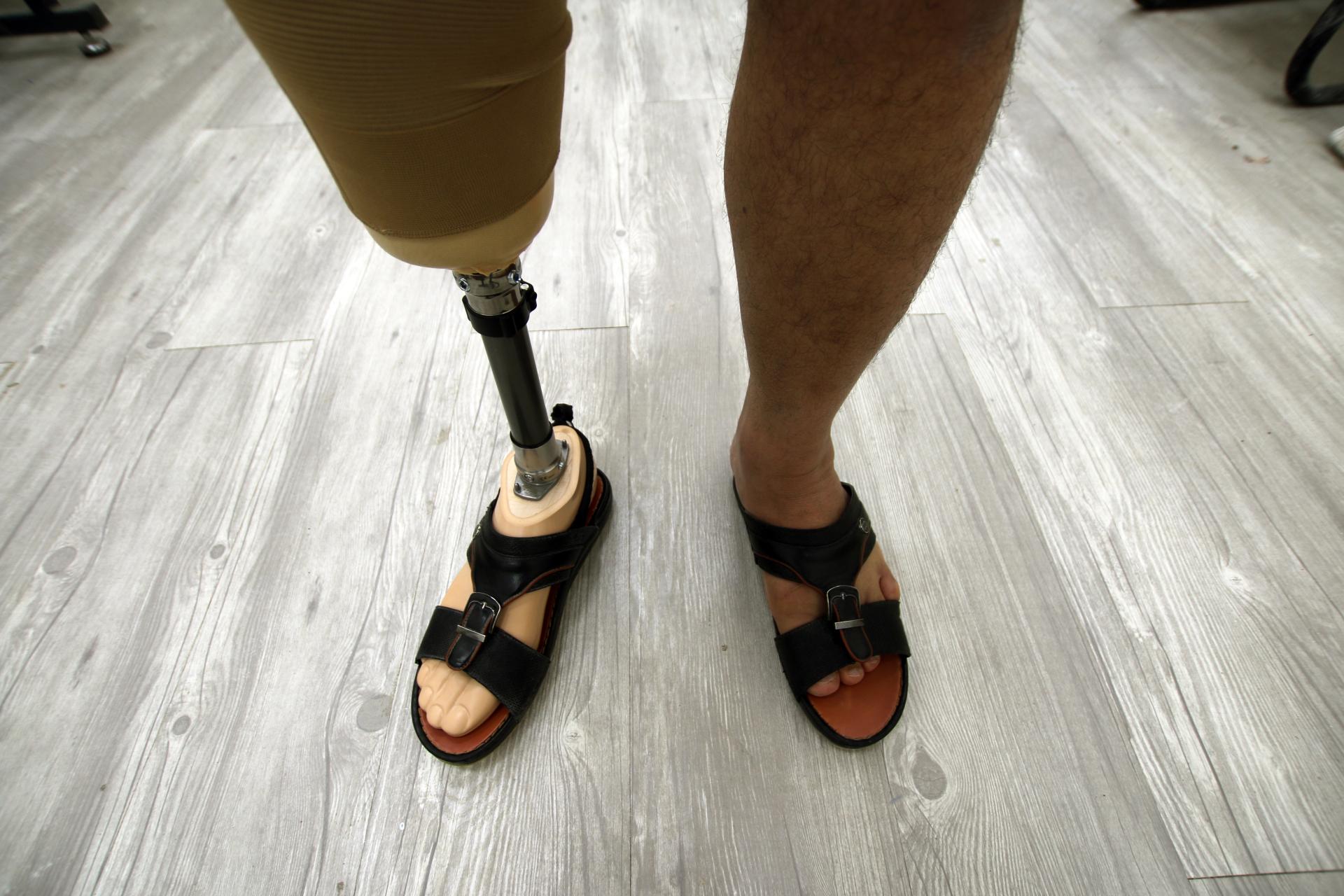
Salih Ali Hassan lost his right leg in 2005 after a stray bullet hit him. Since then, his life has never been the same.
Salih spent days in hospitals and travelled from Falluja to Baghdad in Iraq to save his leg. But it was too late. Eventually doctors had to amputate his leg to keep him alive.
“I suffered in pain for a long time. I took a lot of medication. My life was turned upside down because I could not walk and do anything,” says Salih.
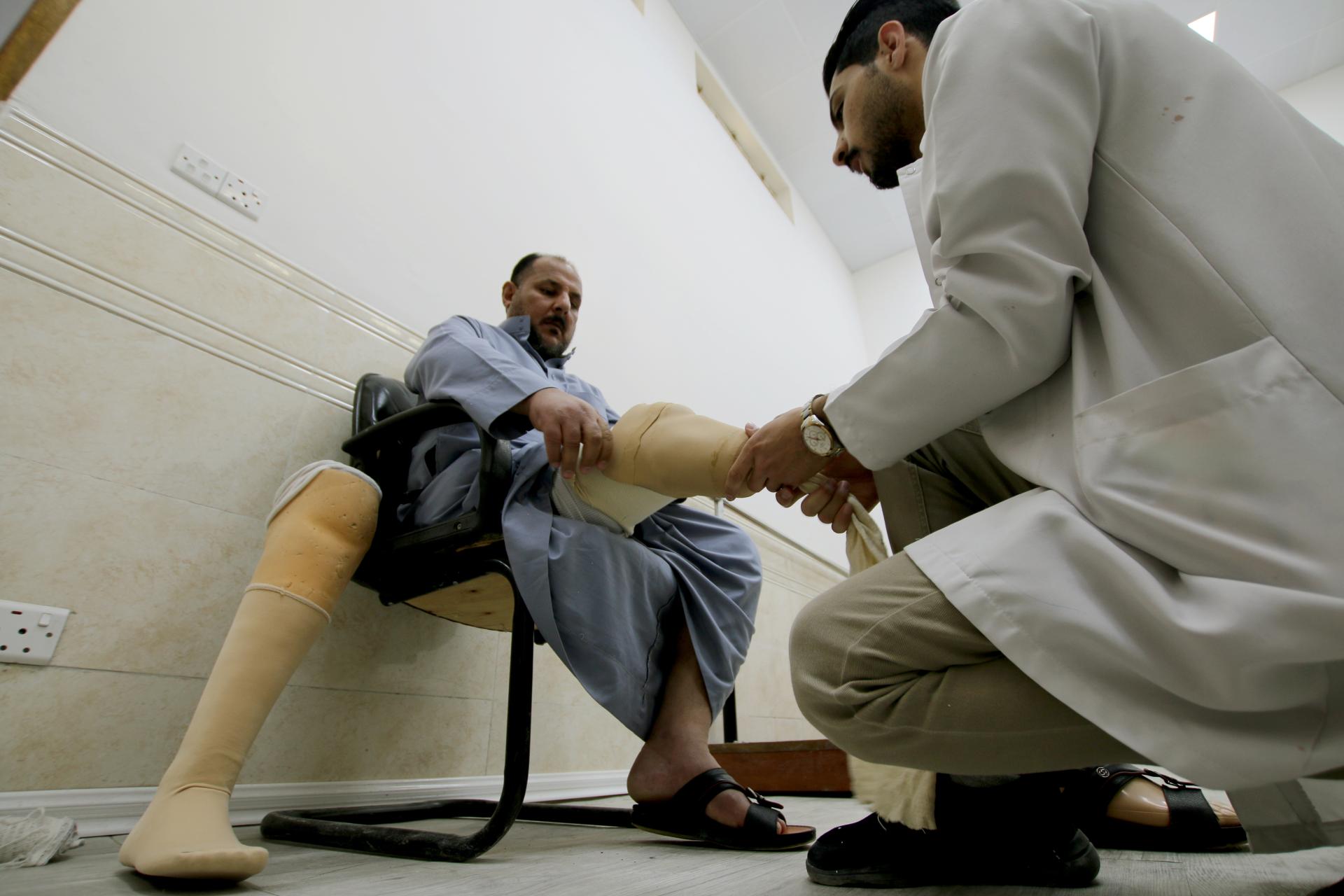
One of the workers in Fallujah’s newly rehabilitated prosthetics centre assembles an artificial limb for a patient.
He soon accepted his fate, recovered, and got himself an artificial limb to resume his life. “It was difficult, but I had to adapt, get used to my new leg, and keep going.”
As the conflict in Iraq continued, more civilians like Salih were caught in the middle. People were killed, injured, and displaced.
In 2008, Fallujah’s prosthetic centre opened to serve the rising number of people in central Iraq who were getting amputated because of the conflict. Managed by the Department of Health, the centre produced prosthetics for more than 2,000 amputees and people with disabilities.
However, the centre could not keep up with the immense number of people seeking treatment and prosthetics.
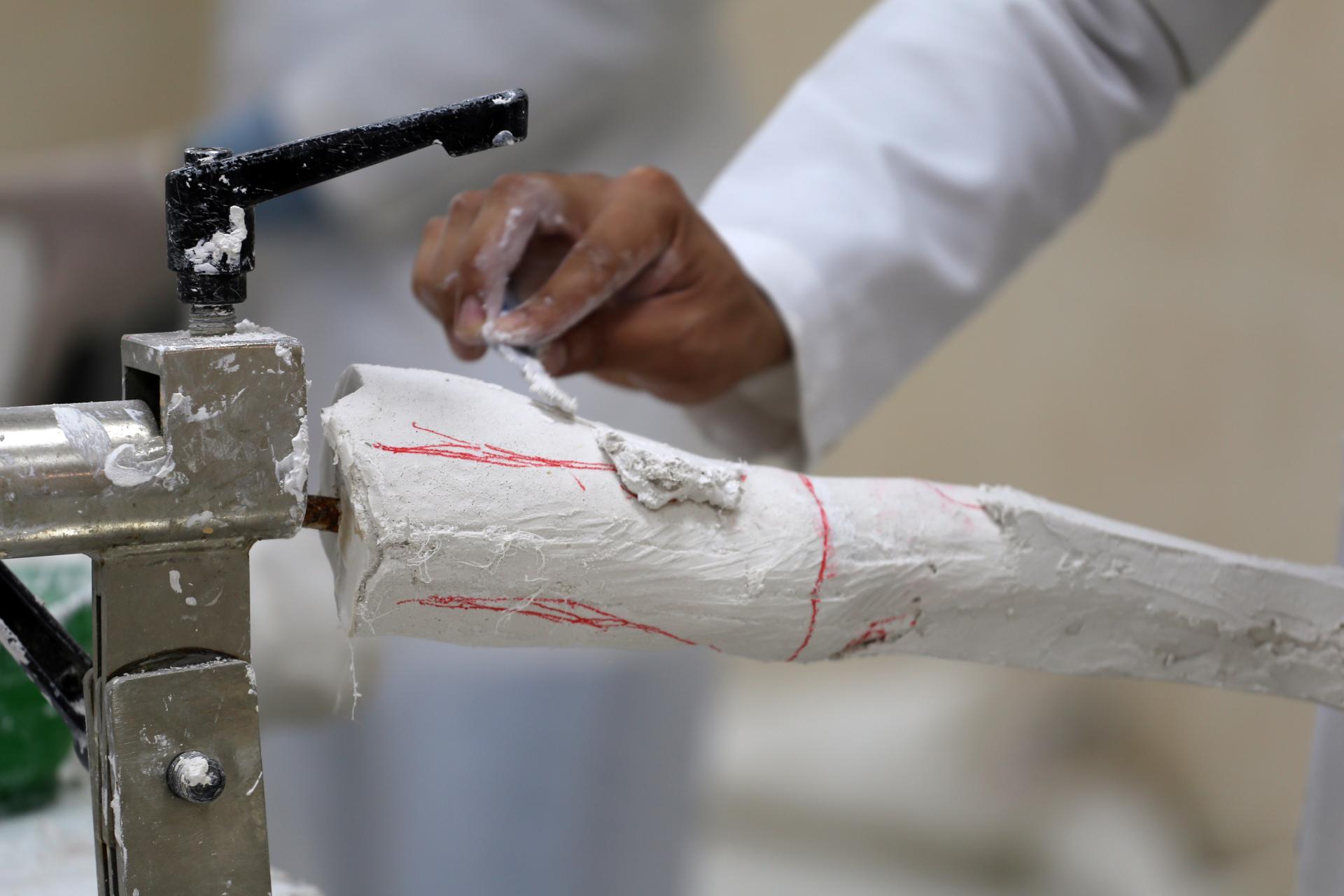
Making artificial limbs requires precision and skill. At Fallujah’s prosthetic centre, workers ensure they provide high quality and comfortable artificial limbs for their patients.
“As the only prosthetic centre in Anbar, we faced enormous pressure to produce the artificial limbs our clients needed. The facility was too small to accommodate all our workers and the materials to create the artificial limbs were limited,” says Dr. Saeed Mardhi al-Jumaili, who has been running the centre since 2008.
Soon it was no longer just the centre’s limited capacity that hindered Dr. Saeed’s team. With ISIL taking over Anbar, workers stopped going to the centre and most Anbaris had fled to safety.
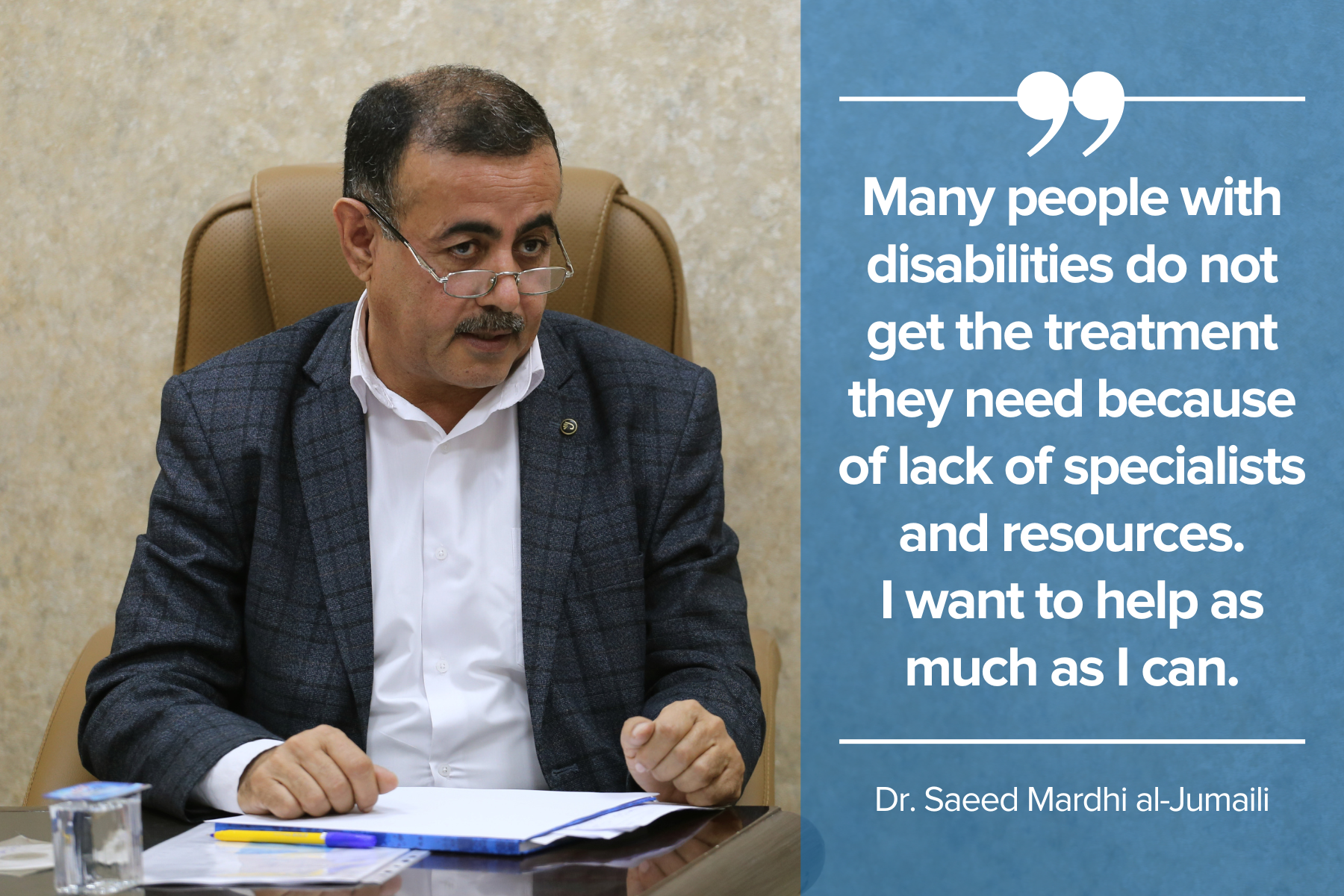
Believing that people with disabilities deserve the best, Dr. Saeed leads his team passionately. For 14 years now, he has helped thousands of people with disabilities to walk again.
In 2013, the centre closed after a huge part of its building was destroyed and most of its equipment was stolen.
Seeing what happened to the centre was extremely painful for Dr. Saeed, who has dedicated his life treating people’s joints and caring for people with disabilities. “ISIL made our lives difficult. Our patients suffered the most, especially those who could not afford expensive private prosthetic centres,” he recalls.
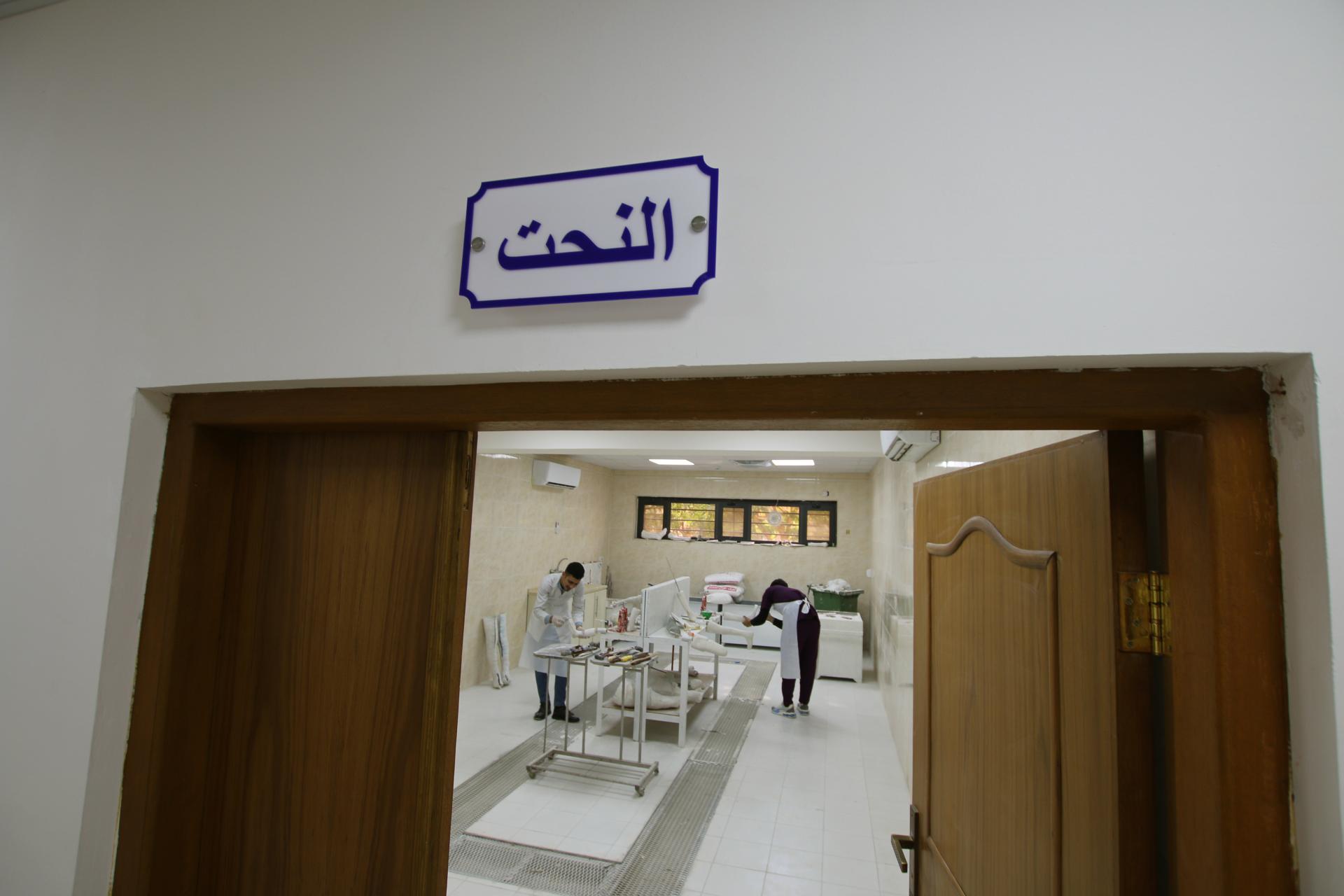
After nine years of closure, Fallujah’s prosthetic centre reopens its doors to amputees and people with disabilities. Bigger and better equipped, the newly rehabilitated centre creates its own molds and sockets to build artificial limbs.
In October 2022, Fallujah’s artificial limbs centre reopened after being rebuilt by UNDP’s Funding Facility for Stabilization supported by the Government of Belgium and Government of Denmark.
Today, the centre serves 4,000 people, including Salih who has returned to Ramadi after years of staying in al-Habbaniyah to escape the war.
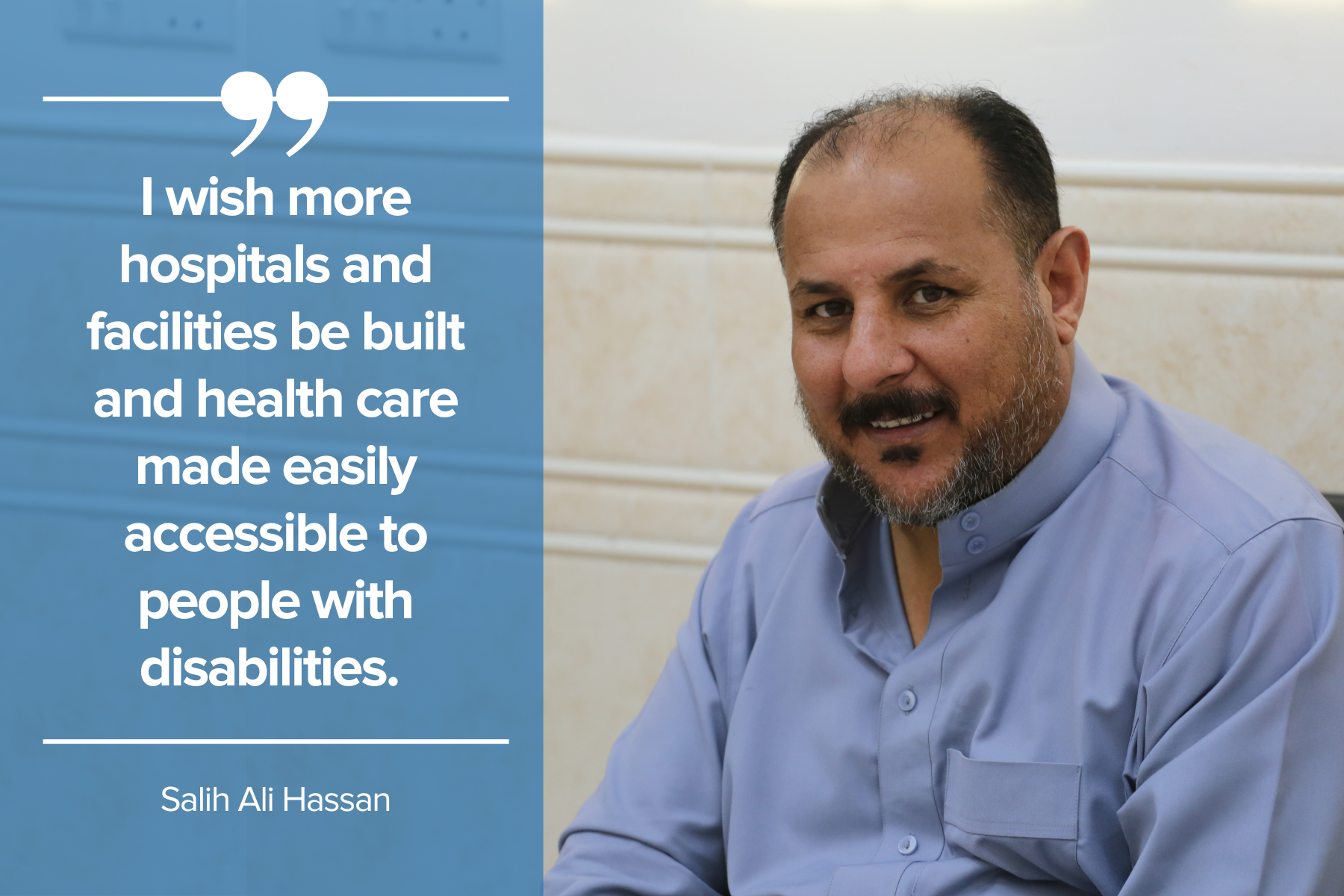
Salih took years to adapt to his new leg, but he was determined to get back on his feet for his family.
“I’m happy that there’s a prosthetic centre near Ramadi. The staff are welcoming, helpful, responsive, and it’s easy to schedule an appointment with them. The materials they use to make the artificial limbs are high quality too,” Salih says during the fitting of his new artificial limb.
Classified as Iraq’s third best prosthetic centre, the rehabilitated facility in Falluja offers free artificial limbs for amputees and people with deformities, as well as training for people who want to learn about artificial limb manufacturing.
“We thank UNDP for expanding the centre. Our production has increased because employees now have the space they need to produce the socket and mold, and assemble limbs with bolts and screws,” Dr. Saeed shares.
“We love seeing our patients happy and able to stand and walk comfortably as they leave the centre. We hope to bring joy and hope as they take their first steps to their new lives,” he adds.

 Locations
Locations